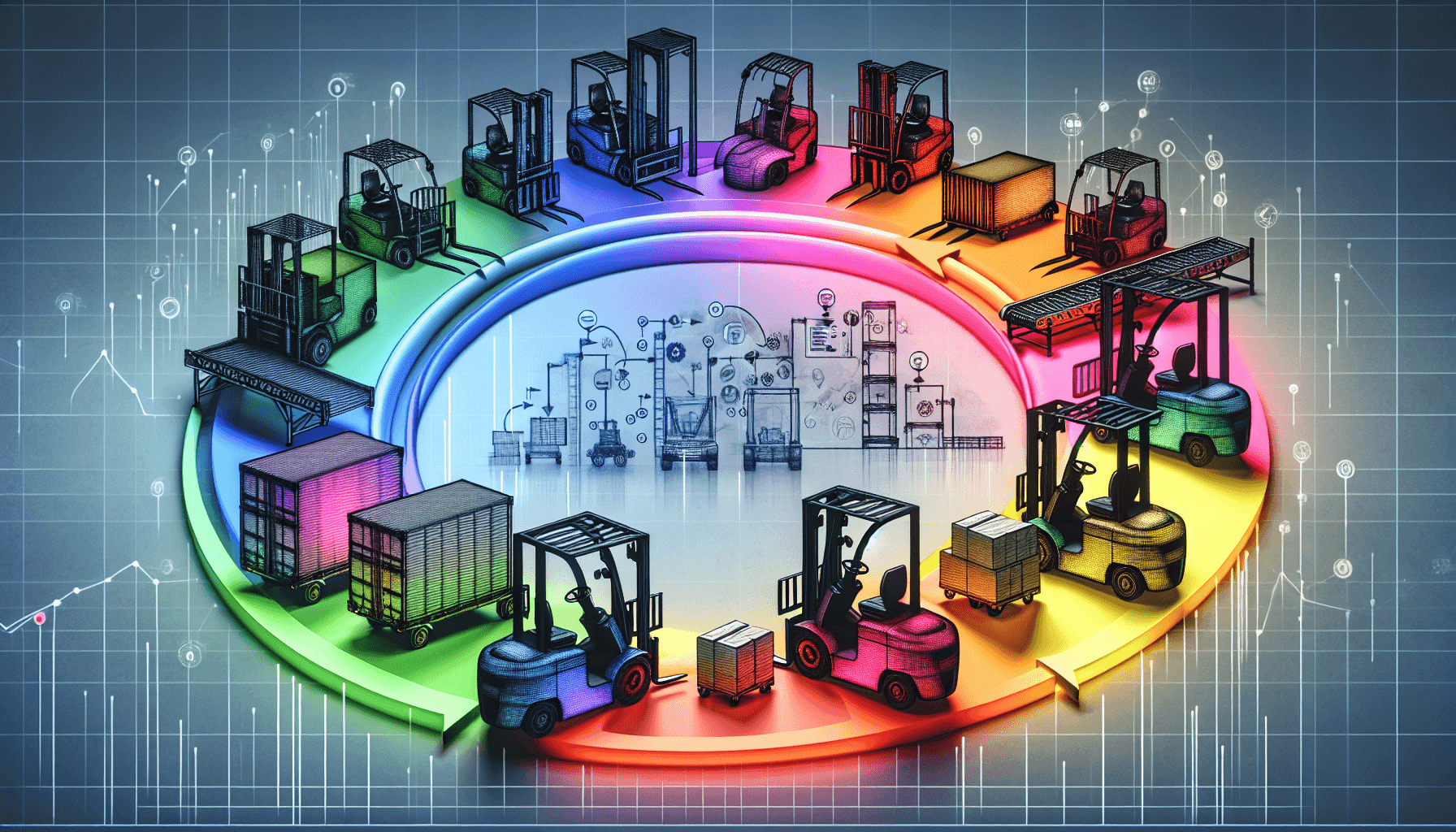In today’s rapidly evolving business landscape, effective warehouse management is crucial for the success of any organization. A well-optimized warehouse not only ensures the smooth flow of goods but also significantly impacts safety, productivity, efficiency, and cost-effectiveness. To achieve these goals, it is essential for companies to implement a comprehensive Material Handling Equipment (MHE) lifecycle management plan.
The Importance of MHE Lifecycle Management
Material Handling Equipment plays a pivotal role in warehouse operations. From forklifts and pallet jacks to conveyors and automated robots, MHE is instrumental in handling, transporting, and storing goods. However, without proper management, MHE can become a liability, leading to operational inefficiencies, higher costs, and safety hazards.
Implementing a well-defined MHE lifecycle management plan allows companies to optimize their equipment usage, minimize downtime, and reduce repair and replacement costs. It involves strategic planning, efficient acquisition, regular maintenance, and timely retirement or disposal of equipment. By following a systematic approach, companies can ensure the longevity and performance of their MHE fleet while improving overall warehouse operations.
Key Steps in Implementing an MHE Lifecycle Management Plan
To effectively implement an MHE lifecycle management plan, companies should consider the following key steps:
- Evaluate Current Equipment: Begin by conducting a thorough assessment of your existing MHE fleet. Identify equipment that is outdated, underutilized, or prone to breakdowns. This evaluation will help in determining which equipment needs to be replaced or retired.
- Develop Equipment Acquisition Strategy: Determine the equipment needs based on your warehouse operations and future growth projections. Research and select suppliers who can provide reliable, cost-effective, and technologically advanced equipment. Consider factors such as equipment durability, compatibility with existing systems, maintenance requirements, and training needs.
- Implement Preventive Maintenance: Regular maintenance is essential for optimizing MHE performance and minimizing breakdowns. Establish a preventive maintenance program that includes routine inspections, lubrications, and repairs to identify and address potential issues before they escalate.
- Train and Educate Staff: Ensure that your warehouse staff is trained in operating the MHE safely and efficiently. Provide comprehensive training programs to enhance their skills and knowledge about the equipment. This will reduce the risk of accidents, improve productivity, and maximize the lifespan of the equipment.
- Monitor and Track Equipment Performance: Implement a system to monitor and track the performance of your MHE fleet. Utilize technology such as telematics and asset management software to collect data on equipment usage, downtime, and maintenance history. This data will provide insights into equipment performance and help in making informed decisions about repairs, replacements, or upgrades.
- Retire and Dispose of Equipment: As equipment ages or becomes obsolete, it is essential to plan for its retirement and proper disposal. Develop a strategy for retiring equipment based on its condition, reliability, and market value. Consider environmentally friendly disposal options such as recycling or repurposing to minimize the impact on the environment.
Implementing an MHE lifecycle management plan requires careful planning, collaboration between different departments, and ongoing monitoring and evaluation. However, the benefits far outweigh the efforts involved. A well-managed MHE fleet leads to improved warehouse operations, increased productivity, reduced downtime, lower maintenance costs, and enhanced worker safety.
At HCO Innovations, we specialize in providing comprehensive warehouse optimization solutions, including MHE lifecycle management. Our experienced team can assist you in developing and implementing an effective plan tailored to your specific business needs. For more information, click here.
Don’t let inefficient MHE management hinder your warehouse performance. Take the necessary steps to optimize your MHE fleet and reap the benefits of improved operations and cost-effectiveness.

